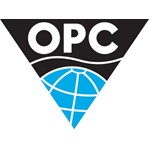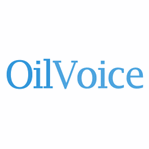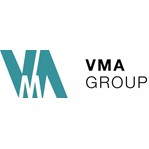REPUTATION IN OIL, GAS & MINING 2013

PROGRAMME
| 08.00 | Registration | |
| 08.30 |
Welcome and opening address |
Andrew Griffin, CEO, Regester Larkin |
| 08.40 |
Reputation and crisis management On 16 January a terrorist group attacked and entered the Tigantourine gas facility, jointly owned by BP, Statoil and Sonatrach, at In Amenas, Algeria. The main tragedy was that 40 innocent people lost their lives as a result of the incident. When companies operate in dangerous locations or in a dangerous sector, their crisis management planning has to be meticulous. There is no sector more closely watched than the extractive industries, so when a crisis occurs a controlled and effectively co-ordinated approach to the crisis communications is vital. Jannik Lindbæk Jr, VP media relations at Statoil and David Bickerton, head of strategic communications at BP discuss the Algerian hostage crisis and their approach to crisis management communications. |
David Bickerton, director of communications, BP Jannik Lindbæk Jr, VP media relations, Statoil
|
| 09.30 | Behind the scenes
The use of video in corporate communications is rapidly increasing. This sessions goes behind the scenes to explore the use of video to communicate with various stakeholders in the extractive industries. Stephen Golding from Tullow Oil will discuss using video to reach out to the internal audience. |
Stephen Golding, internal comunications, Tullow Oil |
| 10.00 | Coffee break | |
| 10.25 | Social Simulator The first few hours of a crisis are more important than ever, as journalists begin to scour Twitter for sources and contribute live reporting from the scene. Concerned relatives and staff will post questions on Facebook. Volunteers will be mapping events and updating Wikipedia pages. Pictures and films will be posted to YouTube and Instagram before they make the news bulletins. The basic communication challenge remains: when a crisis happens, people turn to organisations for timely, accurate and consistent information delivered with empathy and transparency. |
Steph Gray, managing director, The Social Simulator
|
| 11.00 |
Crises will happen. But it is how a company responds to that crisis and, crucially, how it communicates during that time that will determine the true impact on a company’s longer-term reputation. Ben Overlander from crisis and reputations management experts Regester Larkin will discuss some of the top-line principles of best practice crisis communications.
|
Ben Overlander, director, Regester Larkin |
| 11.25 |
Revenue transparency and reputation impacts Chris Scott partner at Schillings, will discuss the ways that extractives companies can identify threats around revenue transparency, what happens when the press wants to get involved and how companies can take proactive steps to protect themselves.
|
Chris Scott, partner, Schillings
|
| 11.55 | Issues in the industry
Oil, gas and mining companies tackle crises on a regular basis. Their brand and reputation depend on a speedy response, and much of that can be pre-prepared. But how does the industry prepare and react to the unexpected? This proactive session examines the issues that challenge professional bodies in the extraction industries. Ashley Shackleton, external affairs officer at Oil & Gas UK, Ben Peachey, communications director at the International Council on Mining & Metals (ICMM) and Ken Cronin, chief executive at the United Kingdom Onshore Operators Group share the reputational issues their members face and how these are managed. |
Ashley Shackleton, external affairs officer, Oil & Gas UK
Ben Peachey, communications director, ICMM
Ken Cronin, chief executive, UKOOG
|
| 12.30 | Close | |











